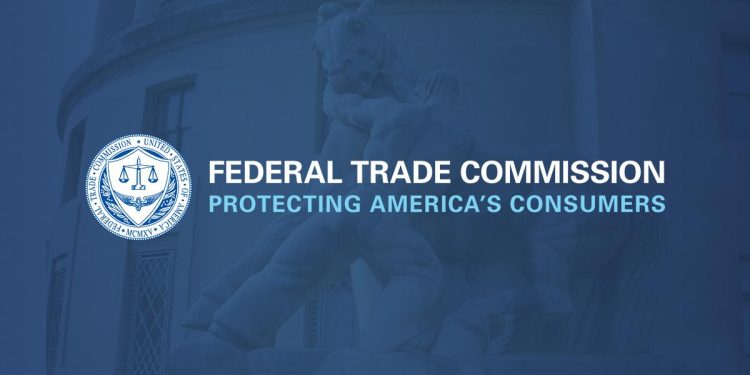The Federal Trade Commission and the State of Colorado are taking action against Greystar, the nation’s largest multifamily rental property manager, for misleading consumers about monthly rent costs by adding numerous mandatory fees on top of advertised prices .
According to the complaint filed by the FTC and Colorado, these hidden fees have cost consumers living in Greystar properties hundreds of millions of dollars since at least 2019, and consumers often only discovered the fees after signing a lease or move in.
“The FTC is suing Greystar for deceptively advertising low monthly rents only to then saddle tenants with hundreds of dollars in hidden unwanted fees,” said FTC Chair Lina M. Khan. “The FTC should continue its work against landlord companies that use illegal tactics to raise rents, exploit tenants, and deprive Americans of safe, affordable housing. »
“Due to Greystar’s misleading advertising and hidden fees, tenants are being charged hundreds, if not thousands, of dollars more in their lease than they had anticipated for their apartment. Through their actions, Greystar is making it harder for apartment hunters to shop around and choose a home that fits their budget,” said Colorado Attorney General Phil Weiser. “To the extent that other business owners fail to advertise their all-inclusive prices and engage in similar tactics, they are aware that such conduct is illegal and will not be tolerated in Colorado.”
Greystar bills itself as the “largest apartment operator in the United States,” managing more than 800,000 residential rental units nationwide in addition to having an ownership interest in more than 100,000 residential rental units. According to the complaint, the company’s portfolio includes apartment buildings and complexes, senior housing and student housing. Greystar is hired by landlords to manage apartments on their behalf, including advertising available units and finding tenants for those units, and the company keeps a percentage of all rents and fees it collects from tenants and tenants. candidates.
Greystar advertises rental properties widely in a number of places, including third-party sites like Zillow, its own website, and sites for individual buildings and complexes. However, consumers cannot rent a Greystar unit at the advertised price, but instead must pay a higher price inflated by hidden fees, according to the complaint.
Greystar’s hidden fees reportedly range from tens to hundreds of dollars per month, which add up significantly over the course of a consumer’s lease. Among the fees mentioned in the complaint are “valet” fees, package processing fees, utility fees, utility bill distribution fees, “verification fees” when consumers use insurance tenant not provided by Greystar and media/smart home packages, among many others. The FTC and Colorado say consumers cannot opt out of these fees even if they do not want or use the associated services.
In many cases, consumers who saw an advertisement for a Greystar apartment had no way of learning about these hidden fees until they filled out inquiry forms with their personal information or clicked on hyperlinks in fine print, according to the complaint. The complaint also explains that Greystar, in some cases, waited to reveal fees until consumers had paid a substantial application fee or security deposit, and then only in a 40- to 60-page rental agreement. . The complaint further claims that if consumers discover the existence of the fees after their application is approved and choose not to sign the lease, Greystar does not refund the application fees or security deposits they paid, which can amount to hundreds of dollars.
The complaint cites several examples of Greystar-managed properties where its advertisements on third-party real estate listing sites, like Zillow, failed to list the company’s mandatory fees, even though those sites had a specific “fees” section in which the company lists as optional fees. such as those for parking or pets. According to the complaint, even on websites operated by Greystar, apartment listings did not include information about mandatory fees, even when optional fees were listed.
According to the complaint, although it knows precisely what fees apply to an individual apartment, Greystar does not tell consumers, who instead must wade through often conflicting information to identify the fees that will apply to their accommodation and add them manually. at the advertised rental price.
Even after moving into apartments managed by Greystar, consumers complained that they were still surprised by mandatory fees for services they had not requested or used, according to the complaint. One consumer said: “When signing my lease I was offered a little over $1,000… with all the extra things you have to pay for, I pay about $1,400, NOT INCLUDING SERVICES PUBLIC…when you need housing, you gotta do what you gotta do. RIGHT?”
Another consumer cited in the complaint said: “Don’t move here. Hidden fees in the lease. They don’t get any stars from me. I ended up backing out and not signing. Lost $360 in deposits and filing fees.
The complaint accuses Greystar and a number of its subsidiaries of violating the FTC Act, the Gramm-Leach-Bliley Act and the Colorado Consumer Protection Act.
The Commission’s vote authorizing staff to file the complaint was 5 to 0. The complaint was filed in the U.S. District Court for the District of Colorado.
NOTE: The Commission files a complaint when it has “reason to believe” that the named defendants are violating or are about to violate the law and it believes that a proceeding is in the public interest. The matter will be decided by the court.
The staff attorneys handling this case are Samantha Bennett, Roberta Tonelli and Spencer Scoville of the FTC’s Western Region in San Francisco.


